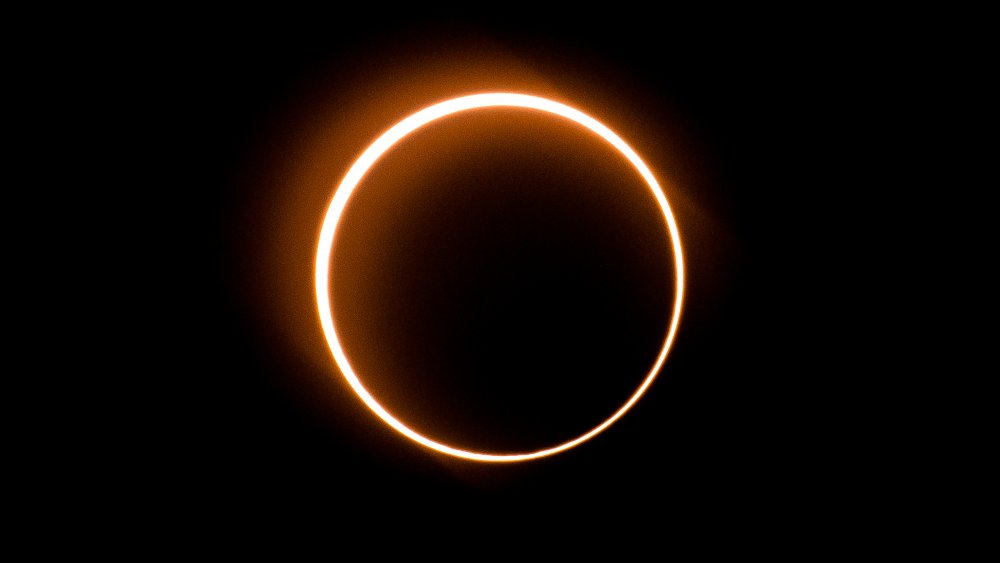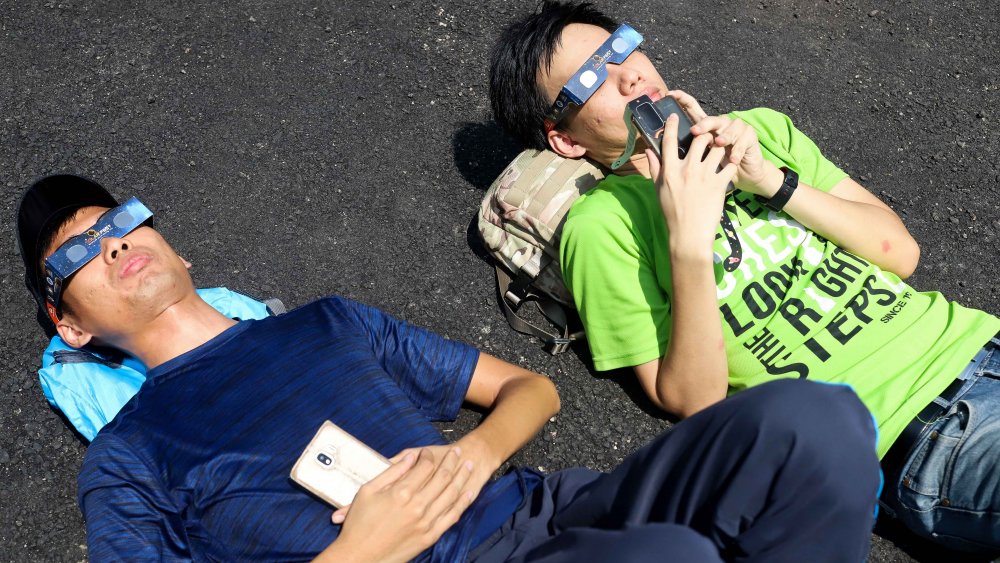'Ring Of Fire' Solar Eclipse Amazes Throughout Asia
The world revolves around the sun, and the sun knows exactly how to rock its way out of the 2010s in style. That's why on Thursday, December 26th, the sun pulled off one final performance. From the Middle East to Southeast Asia, hundreds upon hundreds of observers took off work, gathered in crowds, turned their eyes upward, and enjoyed an awesome show in the sky, as a special annular eclipse — dubbed by many as a "ring of fire," for its unique appearance — proved to be one of the coolest natural phenomena of the decade.
Eclipses this crazy don't come often
Eclipses might look freaky, but they aren't a sign that aliens have already visited Earth. According to TimeAndDate, a so-called "annular" eclipse — named after the Latin annulus, meaning "ring" — occurs wherein the moon, Earth, and sun align, but the lunar body is not quite close enough to the Earth to completely block out the sun. This results in the appearance of a fiery circle in the sky, with a monster black hole in its center, which could easily be mistaken for the Eye of Sauron.
Most of Asia was lucky enough to have front row seats to this rare event, as reported by Phys.org, which only lasted two minutes but will certainly produce a lifetime of stories, memories, and nostalgia. Not every location on the continent had the right weather conditions for optimal viewing, unfortunately: while Singapore's harbor and the Jakarta Planetarium drew major crowds, the view in New Delhi, India got blocked by smog and clouds. Bummer! Regardless, eclipse-watching parties happened everywhere, with the Indian state of Odisha declaring a public holiday, and at least one cricket match being put on pause for two hours.
One thing's for sure: while the human race is a hotbed of conflicts, tension, and disagreements, a good solar eclipse is always a nice reminder, from the heavens, that every person out there is just a little fleshy creature, strapped to a blue rock in space, cluelessly staring upward in a pair of funny glasses.

